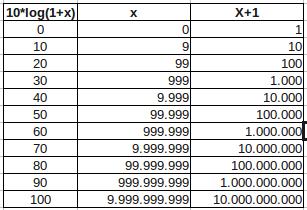
As I am typing this, I suppose that about every second someone gets killed or injured by some accident. And still, I am typing this, without a lot of sorry. Not that this means nothing to me, but when somebody who I do not know dies on the other side of the world, well it is a sad reality, but I do not care very much.
How does it affect you when someone dies or gets severely injured by accident?
An obvious answer to that question is : “it depends”. On what ?
There are several factors that influence the effect an accident has on somebody:
- distance : how far is it from where you live ?
- familiarity : is that person a close relative? Is he a friend, a colleage ? Someone you know from the media?
- Number of casualties : is it one person? hundreds? (compare one person hit by a truck in your village to thousands of them killed in the 9/11 disaster)
- time : how long is it since you first heard of it (time heals all wounds).
- age : an old man dying seems less severe than a child
- health : a very sick (already dying) person, killed in an accident seems less dramatic than a healthy one.
When we combine these factors, we can say that the impact on someone (I) of an accident/disaster is positively correlated with the number of casualties (N), the familiarity(F) and the health (H) and negatively with distance (D), time (T) and age (A).
So a simple equation would be : I=(N+F+H)/(D+T+A)
But now remains the problem of the unities. Distance can be measured in meters or kilometers and amount up to thousends of them whilst age can reach at maximum about 100 years. It seems attractive to try to put every factor in a scale of 0 to 100.
Age is the most simple one and can be used as such.
Number of victims : a nice measure is 10 times the logarithm of 1+ the number of victims. The table below shows us how nicely it goes from zero when there are no victims to near to 100 when the entire world population is extinguished.
A similar approach can be used for distance. Here I use 20 thousand kilometers as the maximum, it’s the other side of the world.
Time is also a rather easy one. I took the first table as a basis and adjusted it somewhat. X is the number of days, and I added a number of years column. We reach 100 after 27 thousand years.
This leaves us with familiarity and health. It is not my purpose to elaborate that in detail. So I suggest that a perfectly healthy person has a score of 100, someone who is already dead is scored as zero and let us use our gut feeling to assign the intermediate values. For familiarity we can use a similar approach: a value of 100 represents the persons we love the most, like our children, our husband or wife. 0 stands for people we do absolutely not know and do not care at all.
And now let us look at some examples.

1.The Banda Aceh tsunami.
The impact now, after 7 years, on somebody on the other side of the world is :
Our formula : I=(N+F+H)/(D+T+A)
Let us assume that those 250 thousand victims where fairly healthy and on average35 years old and we care a little bit about those people.
If we do the math then we find for the first day that the impact on you =(54+3+97)/(100+49+35) = 0.84
A low figure, is it not? But frankly, how often do you still think of that disaster, unless you live in that unlucky part of the world ?
2. Now entirely different : suppose your perfectly healthy child of 1 year old who lives with you dies in an accident (I sincerely wish this will never happen!)
If we do the math then we find for the first day that the impact on you =(3.01+100+100)/(0+0+1) = 203.
Take a look at the formula. What would happen if that child was a newborn one? The resulting value would be infinite! Hence I propose to limit the Impact Value to a maximum of 100.
The formula then becomes : I=min ( 100 , (N+F+H)/(D+T+A) ) which means that if our calculated value is smaller than 100, we accept it, otherwise we just take 100.
I know there is not much science in the above, it was just an interesting (but superficial) thought exercise.
Any suggestion for approvement is welcome.
(Some further reading on this subject : The new problem of distance in morality)




Leave a comment